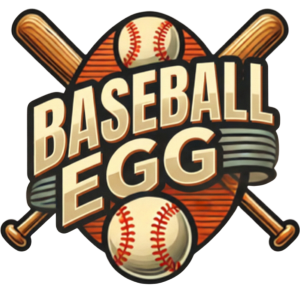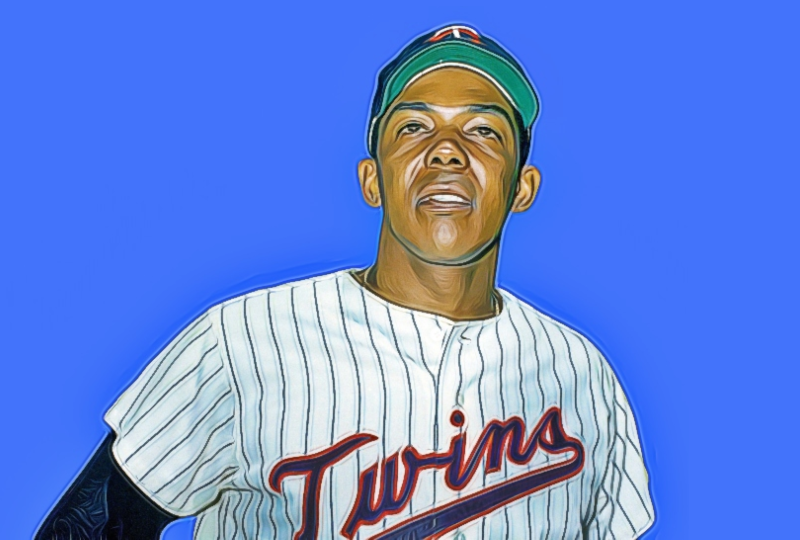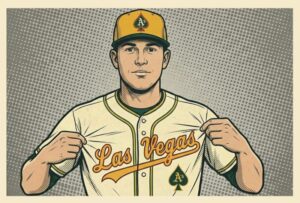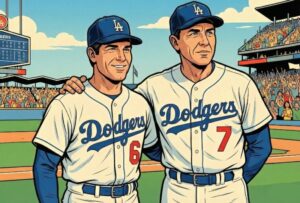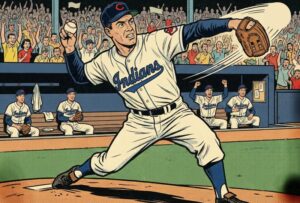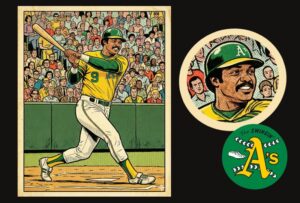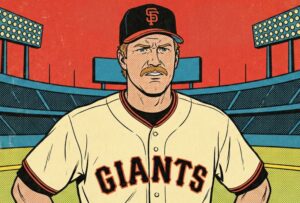In the history of baseball, since they began tossing a ball to a plate and someone with a stick was swinging at it, maybe no more than two dozen men could hit better than Tony Oliva. He was special with a bat in his hands, but a late start and physical weaknesses kept him from reaching career milestones.
Oliva’s name was not Tony, that was his brother’s name. He was born Pedro Oliva, but when it came time to leave Cuba and sign a contract with the Minnesota Twins, Pedro didn’t have the proper paperwork, so he used his brother’s. He played under the name Tony Oliva the rest of his career.
The Twins were in on the paper shuffle, but they thought “Tony” was three years younger than he told them. It didn’t really matter, because Oliva was clearly a great hitter the minute he stepped onto U.S. soil.
In his first professional season in the States, Oliva batted .410 in the Class-D Appalachian League. The next season he batted .350 in the Sally League, and when that earned him a promotion to Triple-A, Oliva hit .304 and was named to the Pacific Coast League All-Star team. It didn’t matter what league he was in, Tony Oliva could hit.
As a rookie, Oliva won the batting title in 1964, leading the league in hits, runs, doubles, and total bases. He was named Rookie of the Year, was an All-Star, and finished fourth in MVP voting. He won the batting crown the next season too, and in his third season he finished second. He added a third batting title in 1971, when he carried his average above .375 as late as August. In all, Oliva finished in the top three in batting seven times in 11 years of qualifying.
Most Batting Titles, Expansion Era
- Tony Gwynn … 8
- Rod Carew … 7
- Wade Boggs … 5
- Roberto Clemente, Bill Madlock, Miguel Cabrera … 4
- Tony Oliva, Carl Yastrzemski, Pete Rose, George Brett, Larry Walker, Joe Mauer, Jose Altuve … 3
Batting titles are out of vogue now. Batting average is old school, and I get it: it’s not the best way to measure a hitter. But the batting crown still has meaning, and you don’t win as many as three titles unless you’re a very good hitter.
There have been 13 players who have won at least three batting titles since 1961, and eight of them are in the Hall of Fame. Three others (Cabrera, Altuve, and Mauer) will join them. That leaves Oliva and Madlock as the outsiders. Do the three titles tip the scales for Oliva? Maybe, but there’s more.
Black Ink, 1961 to 1976
Black ink rewards players for leading the league in batting categories, with a points system (four points for a triple crown category, three points hits, runs scored, slugging), and so on.
For the years he was active, Oliva ranked sixth in Black Ink in all of baseball. Every player on the list above him is in the Hall of Fame.
- Hank Aaron
- Pete Rose
- Willie Mays
- Carl Yastrzemski
- Harmon Killebrew
- Tony Oliva
Bad Ball Hitter, Bad Knees
Oliva was famous for being a low-ball, fastball hitter, and he also could hit a pitch at his chest and above if he needed to. Oliva could hit anything. He once hit a line drive single to left field on a pitch that bounced, and Rod Carew saw him get a hit when he threw his bat at the pitch.
Just like Samson had his hair, Tony Oliva’s weakness was his knees. Only a few seasons into his major league career, the Cuban started to have problems with both knees. It got so bad that he underwent nine surgeries on his knees in a four-year period. After each one, Oliva was left less mobile, more hobbled, increasingly fragile. His legs gradually wore down, leaving him an arms-and-shoulders-only hitter. Oliva was so gifted that he played for the Twins until he was 37, still capable of spraying line drives around the outfield even though he couldn’t run. He benefited from the designated hitter rule in the latter stages of his career.
Hall of Famer?
Oliva didn’t play his first full season in the majors until he was 25 years old. That’s because the Twins, like many teams, held Latin players in the minors to get experience in the States. He was clearly a big league caliber hitter the day he swung at his first fastball in America. He led the league in hits, runs, doubles, total bases, and batting average as a rookie. He was fourth in MVP voting as a rookie, and second the next season. In each of his first three seasons, Tony was in the top six in MVP voting, and he finished in the top ten five times.
Oliva had an excellent arm, and he won a Gold Glove Award. But he was most famous for hitting a baseball. Here are some of the things pitchers said about him:
“I don’t know how to get him out.” — Dave McNally
“He’s the best hitter in the league, period.” — Catfish Hunter
“I tried slow, I tried in, I tried out. Nothing worked against Oliva.” — Tommy John
Oliva wouldn’t be the worst player in the Baseball Hall of Fame. He was considered one of the best hitters in the American League for his entire career. He won awards, batting titles, and helped his team to a pennant.
In his last appearance on the Golden Days Era Ballot, Oliva garnered 11 votes, one shy of election. This time, he faces Minnie Miñoso, Dick Allen, and Jim Kaat on the same ballot. It seems likely Miñoso and Allen will be elected. Can a third player also get the votes?
He has a higher career OPS+ than Roberto Clemente (close, 131 to 130), and among players who had shorter careers, Oliva has a higher OPS+ than Jim Rice and Kirby Puckett, by far.
You can argue that it’s unfair that Oliva gets penalized by some voters because his career was brief, because Oliva didn’t get a chance to play here, staying in Cuba until he was in his mid-20s. But even so, his “shorter” MLB career is comparable or better than that of Puckett, Rice, Earle Combs, Heinie Manush, and Richie Ashburn, Hall of Famers all.
MORE ABOUT OLIVA
The 100 Greatest Right Fielders of All-Time >
Minnesota Twins All-Time Team >
20 Greatest Twins of All-Time >
